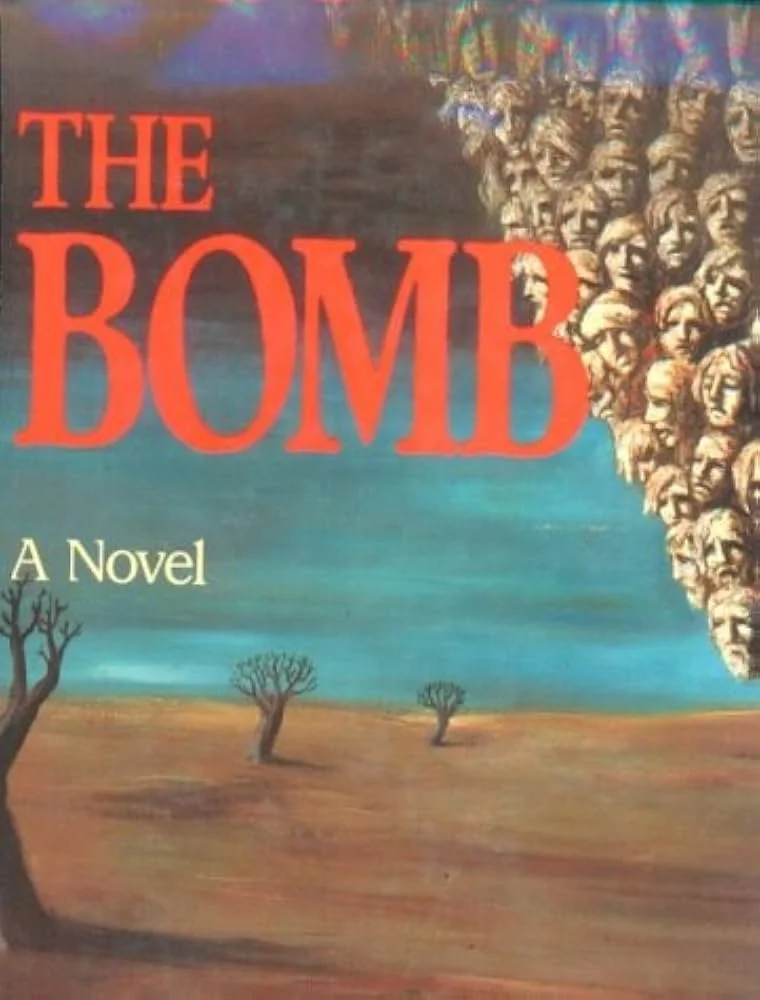The Bomb by Makoto Oda, translated by D. H. Whitaker (Kodansha) ~Ernie Hoyt
Makoto Oda is a Japanese writer who was born in 1932 and died in 2007. He was also a political activist and was the founder of the Citizens’ Coalition for Peace in Vietnam and one of the founders of the Article 9 Association of Japan. Article 9 is a clause in the Japanese constitution which outlaws war as a means to settling international disputes of state.
The Bomb is his first book to be translated into English. It was first published as Hiroshima in the Japanese language by Kodansha. This new edition was translated by D.H. Whitaker, who at the time of publication, worked as lecturer in Japanese Studies at Cambridge University.
This book is not your average story about the atomic bombing of Hiroshima. It does not focus on the destruction of the city. It is not about the making and dropping of the bomb and is ethical usage. It is about how war affects everyone - those abroad and those at home.
Oda presents a collage of stories and people that are interconnected - a young man working in a small town near White Sands, New Mexico, the testing ground of the atomic bomb. Japanese emigrants and their internment, the legends of the Hopi and how the U.S. government forced them off their own land.
When the story shifts to Japan, Oda focuses on the problems that face returnees from the U.S., the plight of the Koreans forced into labor, the portrait of the Emperor and Empress of Japan, and of course, the devastation caused by the bomb.
Joe was a ranch hand who worked for a man named Will, the owner of the ranch. Joe often ran in the desert gaining him the nickname of “the runner” by the locals. Joe had left home when he was seventeen to find work and a place to live on his own. His parents were already dead and he felt he was becoming a burden on his brother’s family.
Will had introduced Joe to Chuck, an Indian who was famous among his tribe. Chuck was also a runner and had won the bronze medal in the marathon at the Olympics some thirty years ago. He was famous, even in the white man’s world.
Joe had a secret admirer. Her name was Peggy. Laura, an Indian who worked as a maid at Peggy’s house, had told Peggy about Chuck. Of course, Peggy didn’t believe her. Her mother had said to her, “Indians are liars”. Her mother also said, “you never knew what those people were thinking”. Those people included “Indians, Negroes, Chinese and especially Japs”.
The Hopi, the tribe which Chuck belonged to, are a peaceful tribe. It was against the tribe’s tradition and culture to take up arms against another race. Chuck was given the choice of joining the army or going to prison. He decided to join the army.
The Japanese had just bombed Pearl Harbor and it’s only a matter of time before Joe would be called up to service. After the bombing, the U.S. government issued Executive Order 9066 and Public Law 77-503. These laws authorized the forced interment of over 120,000 Japanese-American citizens during World War II.
Many nisei or second generation Japanese - people who were born and raised in the United States, chose to move to Japan even though they couldn’t speak the language. They were as unwelcome in their parent’s home country as they were in their own.
Oda sheds light on many aspects of the bombing of Hiroshima that a lot of Americans may be unaware of. If I remember my U.S. history classes, we were taught that the U.S. tried to remain neutral but joined the war after the surprise attack on Pearl Harbor.
What we are not taught is why Japan attacked Pearl Harbor (it had something to do with the oil embargo the U.S. placed on Japan). We were not taught that the U.S. governments forcibly removed Native Americans from their lands so the government could build and test a new weapon they were working on. The classes also didn’t teach us about the Americans who worked in the uranium mines and suffered the same fate as the bombing victims of Hiroshima.
The Bomb may be a fictional account of actual incidents but it makes its point quite clear - “In war, there are no winners!”. We, as humans, have a long way to go before we can achieve world peace but it’s a goal worth attaining.
